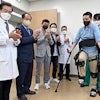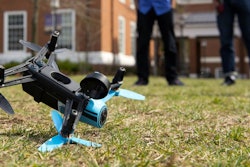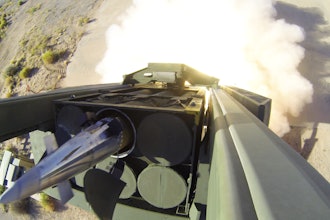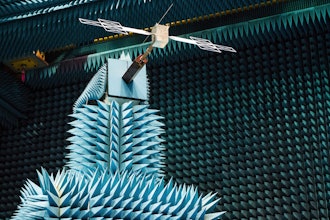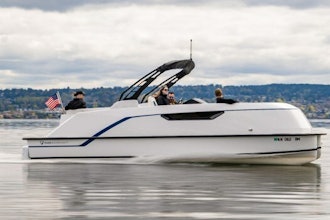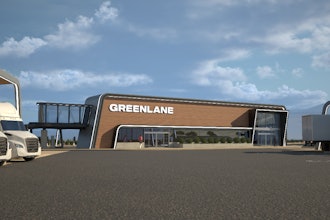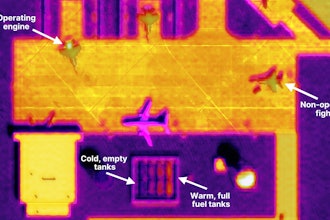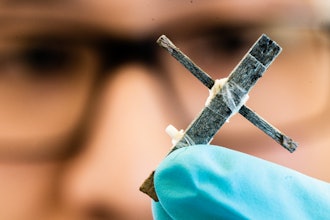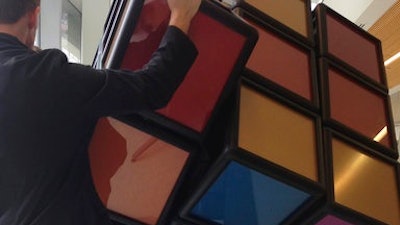
ANN ARBOR, Mich. (AP) — University of Michigan mechanical engineering students have made one of the most popular puzzle games much larger. And tougher to solve.
Seven former and current students unveiled a 1,500-pound Rubik's Cube during a ceremony Thursday inside the G.G. Brown engineering building on the Ann Arbor campus. The massive, mostly aluminum structure is meant to be played by students and others on campus.
Four students came up with the idea three years ago and handed down the project to other students.
"It's the largest solvable mechanical stationary Rubik's Cube," said Ryan Kuhn, a 22-year-old senior who helped assemble the giant puzzle this week. "It was kind of an urban myth of North Campus, this giant Rubik's Cube that's been going on for a while."
The oversized version of the brain-teasing 3-D puzzle, which has flummoxed players since its heyday in the 1980s, is much harder to decipher than its diminutive counterpart, said Kuhn, who called it an "interactive mechanical art piece."
The puzzle is solved when the player is able to manipulate the cube until all nine squares on each of its six sides display an individual color.
"It's very reasonable that it could take at least an hour" to solve, said Martin Harris, who helped conceive the project in 2014 while hanging out in the College of Engineering honors office.


